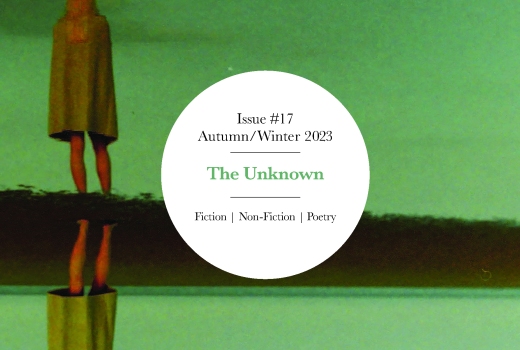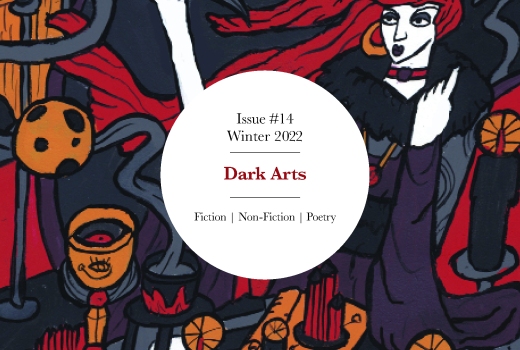The theme of our seventeenth issue, “The Unknown”, enticed writers to contemplate strangeness and difference of all kinds: in travel and identity, race and sexuality, religion and history. The broad scope in subject matter yielded a corresponding range of tones in authors’ handling of their themes, from sinister to comic.
Lisa S Lee opens the issue with a punchy short piece, “Not Quite Conversations”, born from her experience as a Korean American in the USA. Two more non-fiction tales punctuate the issue: “Variations on the Murder of my Stepfather”, in which Jessica Hinds takes a playwright’s view of the father figure in her life, and Alex Barr’s “A Nice Trouser”, his humorous memoir about an inscrutable Eastern European translator.
As ever, the edition offers a trove of compelling short fiction, all with diverse takes on the theme. Nathan Pettigrew depicts a Christian pastor in “Pride Month” at odds not only with the local imam in his Louisiana parish, but also with his own daughter. Two authors imagine very different responses to bereavement: in “Blue”, Chelsea Utecht conjures the supernatural consequences of a mother’s grief, while the protagonist of Sarah Turner’s “En Route to Elsewhere” takes off for South America following the death of her best friend. Warren Benedetto satirises a group of frenemies in his New York story “A Perfect Fit”, in which superficial preoccupations lead to a murky outcome. Billy Craven’s traveller in rural Ireland rues a wrong turn in his flash fiction piece, “In the Loop”.
From geographic to time travel, the Unknown issue also showcases the 2023 Shooter Short Story Competition winner. “The Ones Who Came Before” by Alice Gwynn revolves around a child who strays much farther than usual at a castle playground. Gwynn won the accolade for her evocative descriptions and skilful handling of plot twists in a story with deeper undercurrents of identity and loss.
The work of six poets (Martha Coats, Jenny Mitchell, Cecile Bol, Alexander Gast, Lawrence Bridges and Ben Groner III) complements the edition’s prose with distinctive perspectives on motherhood and love, emigration and art, other places and times.
Finally, Nicholas West closes the issue with his debut publication, the formally innovative “GPS” – a timely play on technological concerns with an apocalyptic outcome. Here, in Shooter’s Unknown issue, the end of the world can be synonymous with the beginning of compelling adventures in literature.
To order a copy of the Unknown issue, please visit the Subscriptions page.





